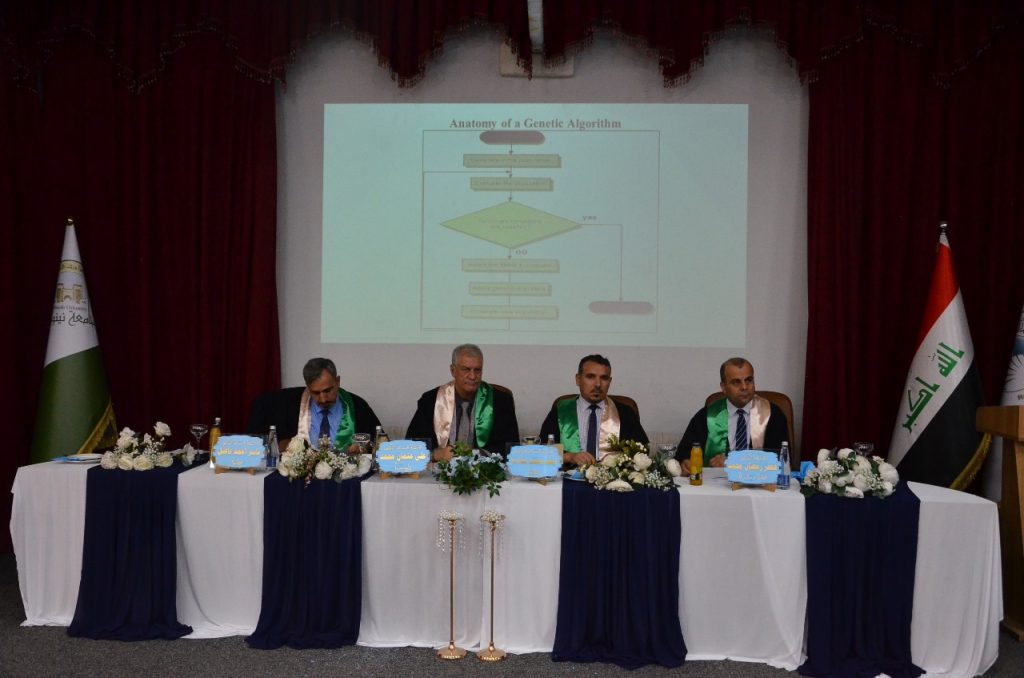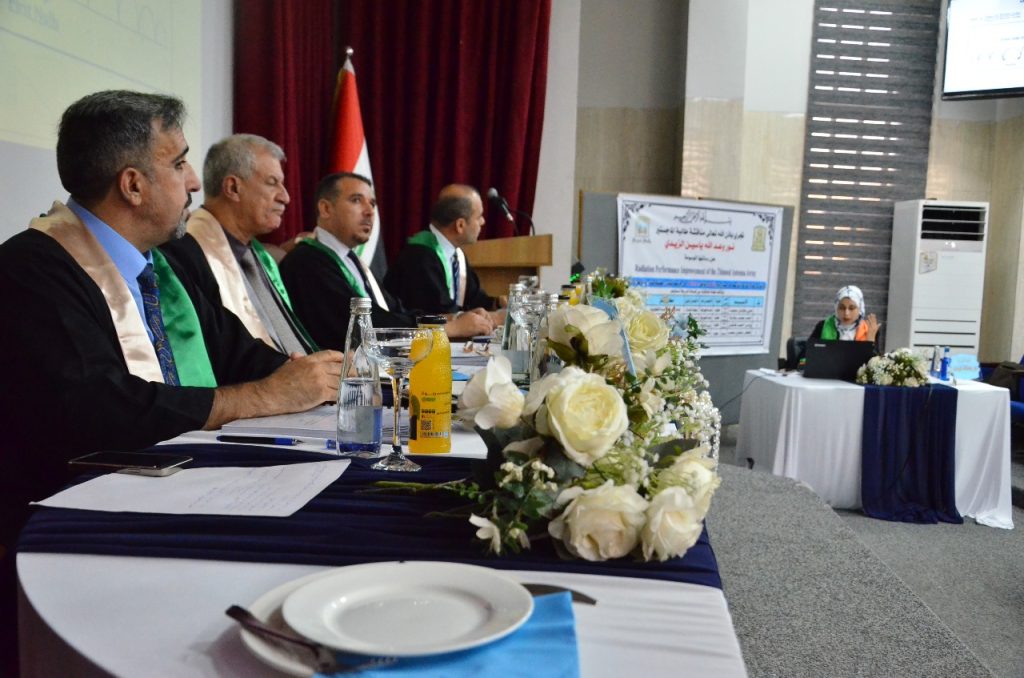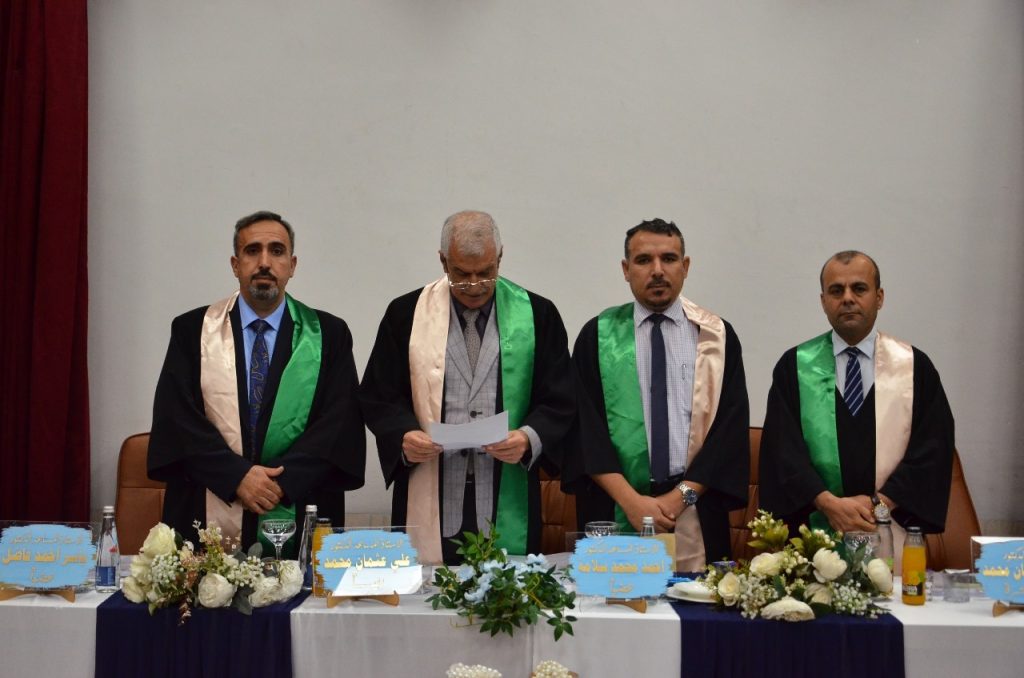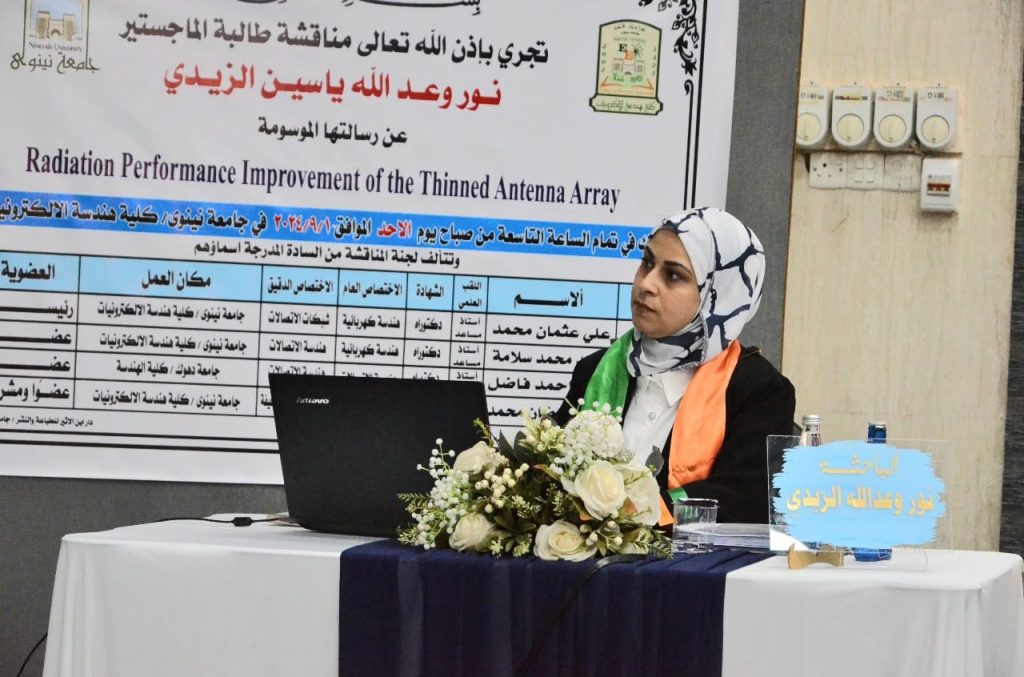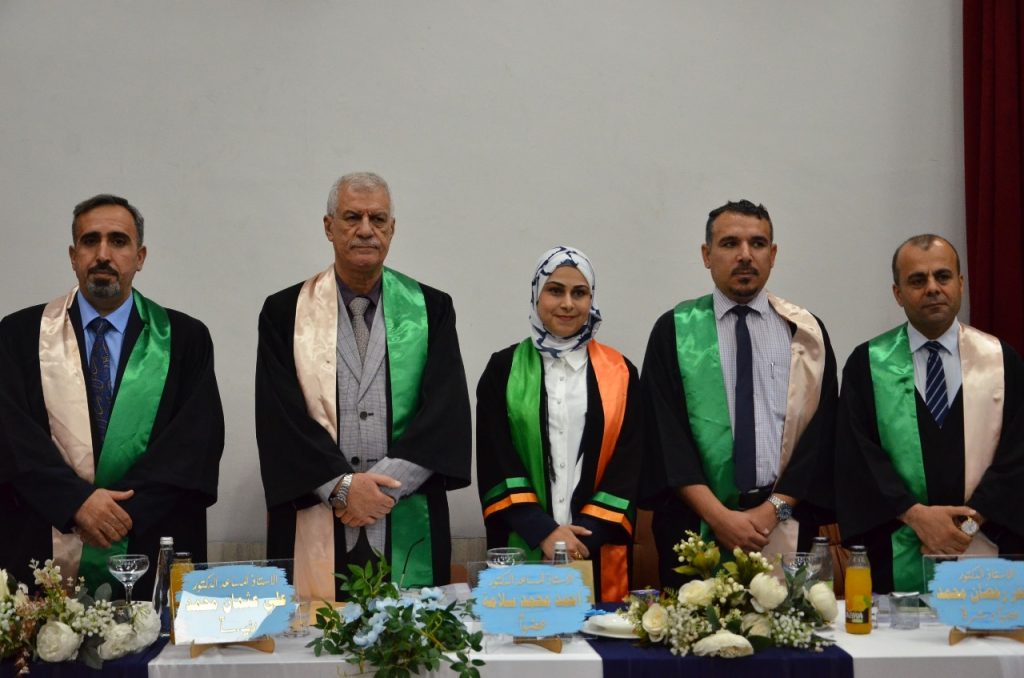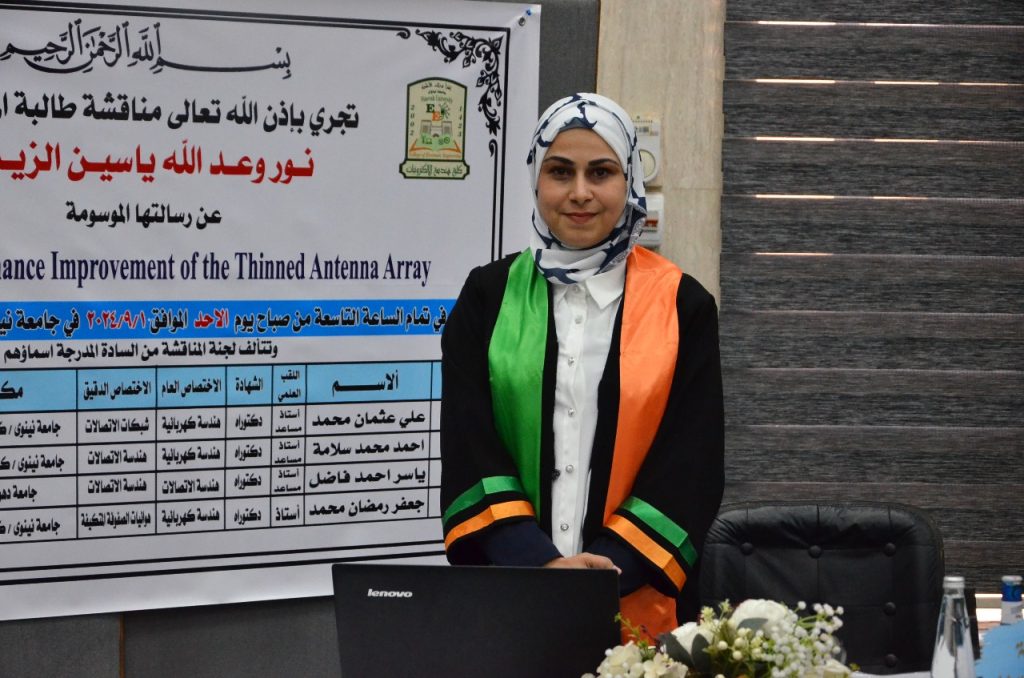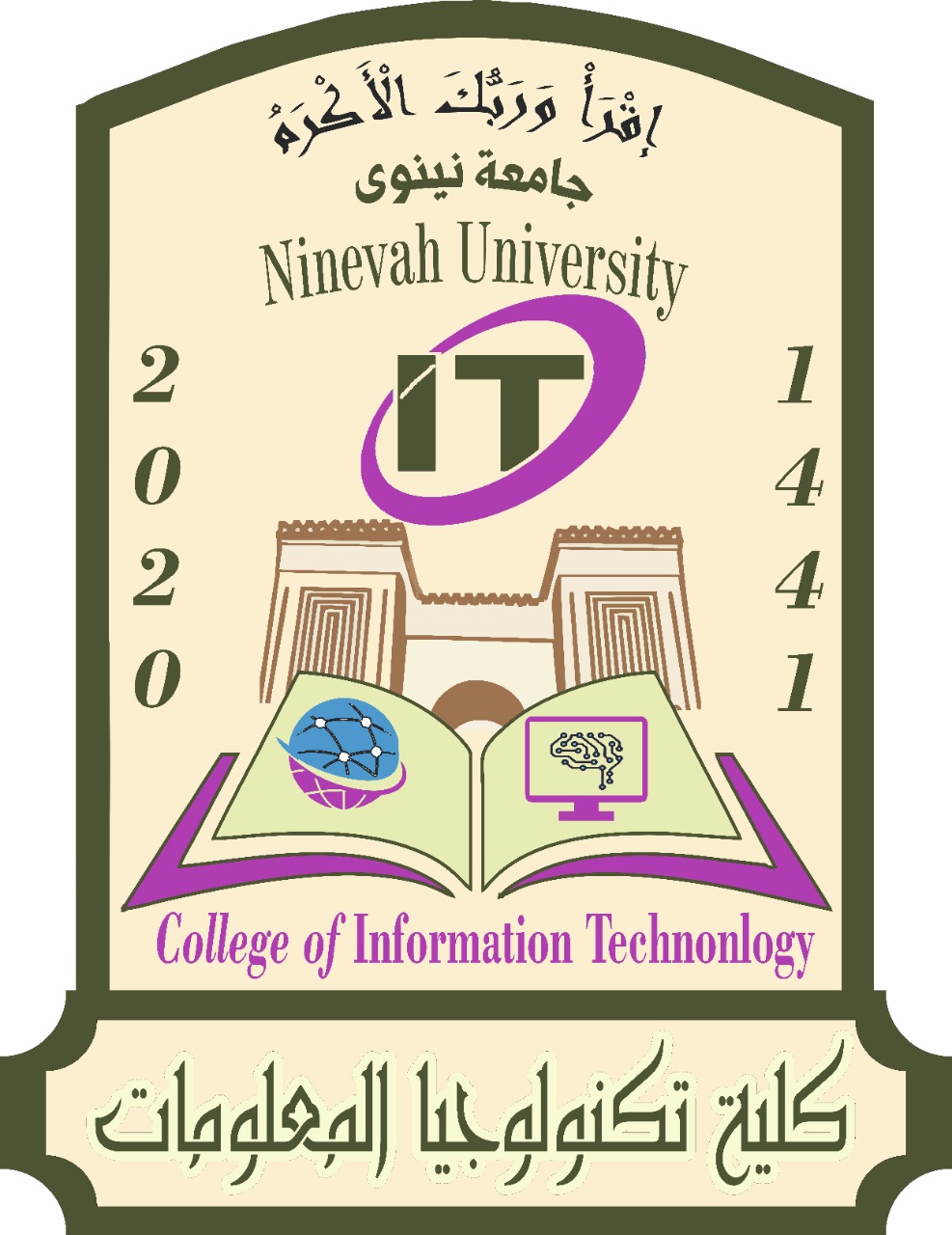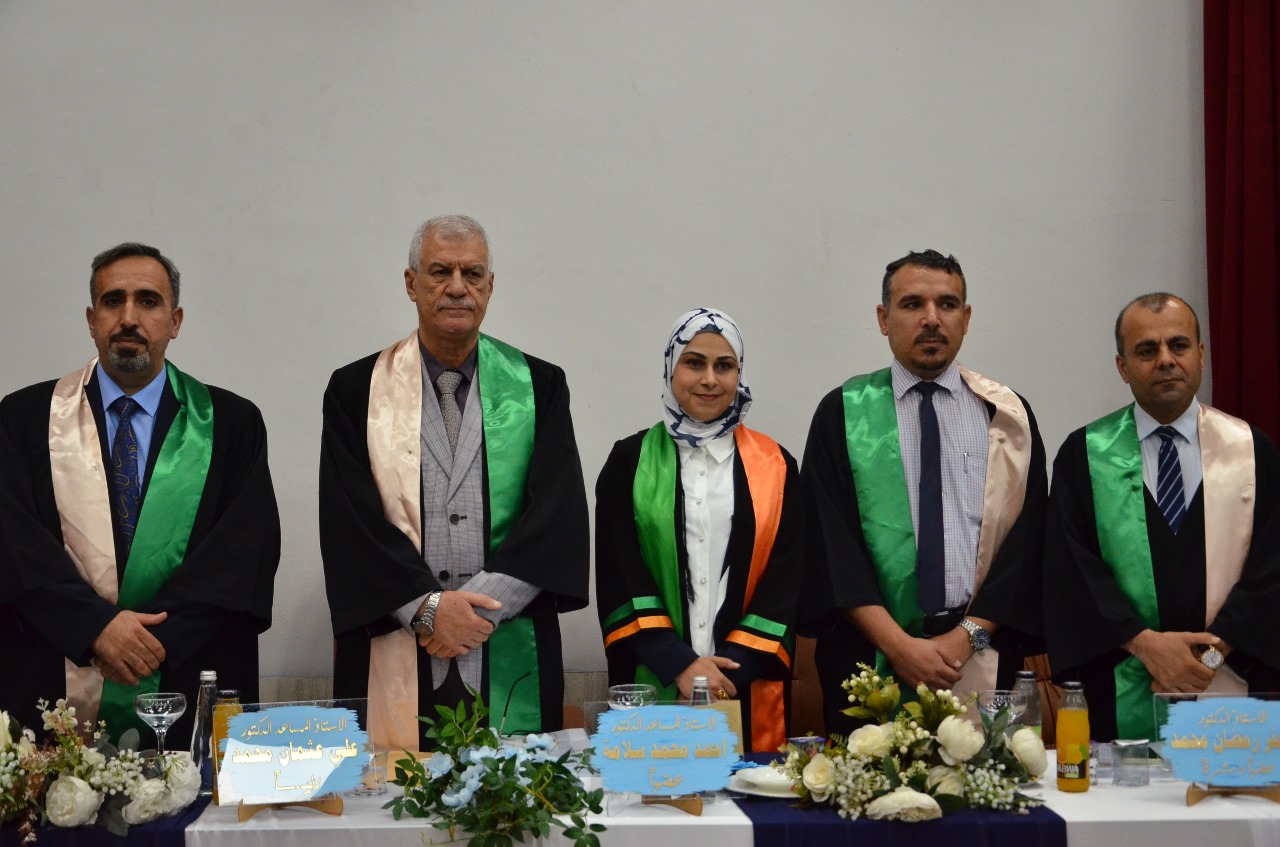The Assistant Dean for Scientific Affairs of the College of Information Technology Chaired a discussion committee of M.Sc. student Noor Waadallah Yaseen at the College of Electronic Engineering / Department of Communications Engineering entitled “Radiation Performance Improvement of Thinned Antenna Arrays.”
The thesis focused on the study of deactivating certain elements in the array to reduce cost, weight, complexity, power consumption, and heat dissipation in arrays where all elements are active, while maintaining optimal system performance by preserving antenna characteristics through various techniques such as the random thinning method and iterative Fourier transform method.
The thesis proposed an effective optimization method based on a genetic algorithm and dynamic deactivation to randomly deactivate a number of array elements in order to reduce the level of side lobes while simultaneously preserving the array’s directivity without distortion. It also explored conducting a scanned main beam at various angles while deactivating some elements from the array and compared the performance of the proposed enhanced method (GA) with that of an array where all elements are fully active.
The study aimed to optimally select the deactivation method for the appropriate number and locations of elements that need to be disabled, ensuring that the resulting radiation characteristics are positively altered according to a defined cost function. The performance of the proposed enhanced algorithm was found to be very good when selecting a small number of thinned elements, ensuring that it did not adversely affect array performance. However, performance began to decline significantly with a substantial increase in the number of thinned elements, necessitating considerable execution time and extensive search for optimal solutions.
The discussion committee included:
- Asst. Prof. Dr. Ali Othman Mohammed – Chairman
- Asst. Prof. Dr. Ahmed Mohammed Salama – Member
- Asst. Prof. Dr. Yaser Ahmed Fadhel – Member
- Prof. Dr. Jaafar Ramadan Mohammed – Member and Supervisor
